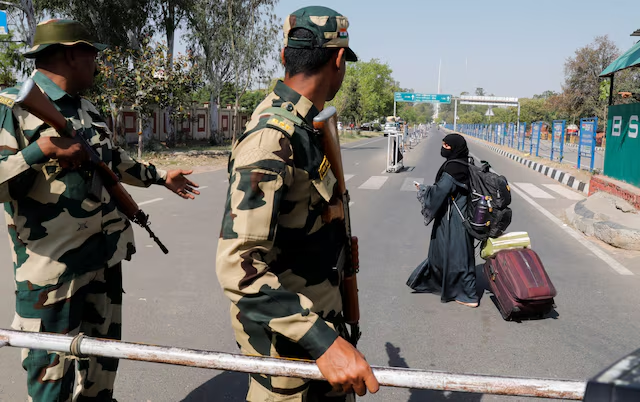Modi Vows India Will Keep Water Previously Sent to Other Countries

Modi Vows India Will Keep Water Previously Sent to Other Countries
Prime Minister Narendra Modi recently declared that India will no longer send its water outside its borders, which it previously shared with neighboring nations. This decision aims to secure India’s water resources for the benefit of its citizens.
India shares water resources with countries like Pakistan, Nepal, and Bangladesh. Historically, India has been generous with water-sharing agreements. However, with growing water scarcity and increased demands, Modi’s announcement signals a shift in the country’s approach to water management.
The Context of the Water Dispute
India’s water-sharing agreements have been a source of tension for many years. The most notable of these is the Indus Water Treaty (IWT) with Pakistan, signed in 1960. This treaty allowed India to share water from the Indus River system, but Modi’s statement suggests India may reconsider this approach.
Water scarcity is becoming a global issue. The United Nations reports that nearly 2 billion people live in countries facing high water stress. With over 1.4 billion people, India faces particular challenges. Ensuring the sustainability of its water resources has become crucial as the country deals with droughts and unpredictable monsoons.
Modi’s Statement and Its Implications
Modi emphasized the importance of retaining control over India’s water resources. “We must ensure that every drop of water benefits our people,” Modi said. He stressed that India would no longer allow water to be misused by other countries.
The Prime Minister also highlighted the country’s efforts to improve domestic water management. “We are working to better manage our rivers, lakes, and groundwater,” he added.
This statement marks a potential shift in India’s diplomatic strategy regarding water-sharing agreements.
Water Scarcity in India: The Urgent Need for Reform
India has faced water shortages for decades. Over 50% of the population relies on groundwater for drinking and irrigation. Unfortunately, over-extraction has led to the depletion of aquifers, especially in states like Punjab, Rajasthan, and Gujarat. This has caused crop failures and forced many to migrate.
To address this, the Indian government has launched several initiatives. Programs like the “Jal Jeevan Mission” aim to provide piped water to rural areas. The “Namami Gange” program focuses on cleaning and rejuvenating the Ganges River.
Diplomatic Considerations and Regional Relations
Modi’s comments could impact India’s relations with its neighbors. India shares major rivers with Pakistan, Nepal, and Bangladesh, and changes to water-sharing agreements could affect these relationships.
Pakistan, in particular, has expressed concern over India’s control of rivers under the Indus Water Treaty. Modi’s new stance on water could intensify tensions with Pakistan if it feels its water supply is at risk.
India’s relations with Bangladesh and Nepal could also be affected. While Modi did not mention specific countries, any changes in water policies would have a broad impact on regional diplomacy.
Technological Innovations in Water Management
India is also exploring technological solutions to manage its water resources. The government has promoted modern irrigation systems, such as drip and sprinkler irrigation. These systems use water more efficiently than traditional methods.
Rainwater harvesting systems are another key initiative. These systems help capture and store rainwater for later use. Additionally, water recycling and desalination projects are being developed to reduce dependence on external sources.
Global Context and Lessons from Other Nations
India is not alone in facing water scarcity. Countries like Israel and Singapore have developed innovative solutions to manage their water supplies.
Israel leads in water conservation, using technologies like drip irrigation and desalination. Singapore’s NEWater system recycles wastewater to create a sustainable water supply. These examples provide valuable lessons for India as it addresses its water challenges.
The Road Ahead for India’s Water Policy
Modi’s statement marks a significant shift in India’s water policy. However, how this change will unfold remains to be seen. India must take urgent action to secure its water resources. This includes improving internal water management and investing in sustainable water technologies.
At the same time, India must balance its national interests with regional cooperation. Maintaining good relations with neighboring countries while ensuring sustainable water use will be critical.
Conclusion
India’s water crisis is one of the most pressing challenges it faces. Modi’s statement signals a new direction in the country’s water management strategy. By focusing on conservation and ensuring control over water resources, India can better safeguard its future.
However, India will need to carefully navigate its relations with neighboring countries while ensuring its water resources are used wisely and equitably.






